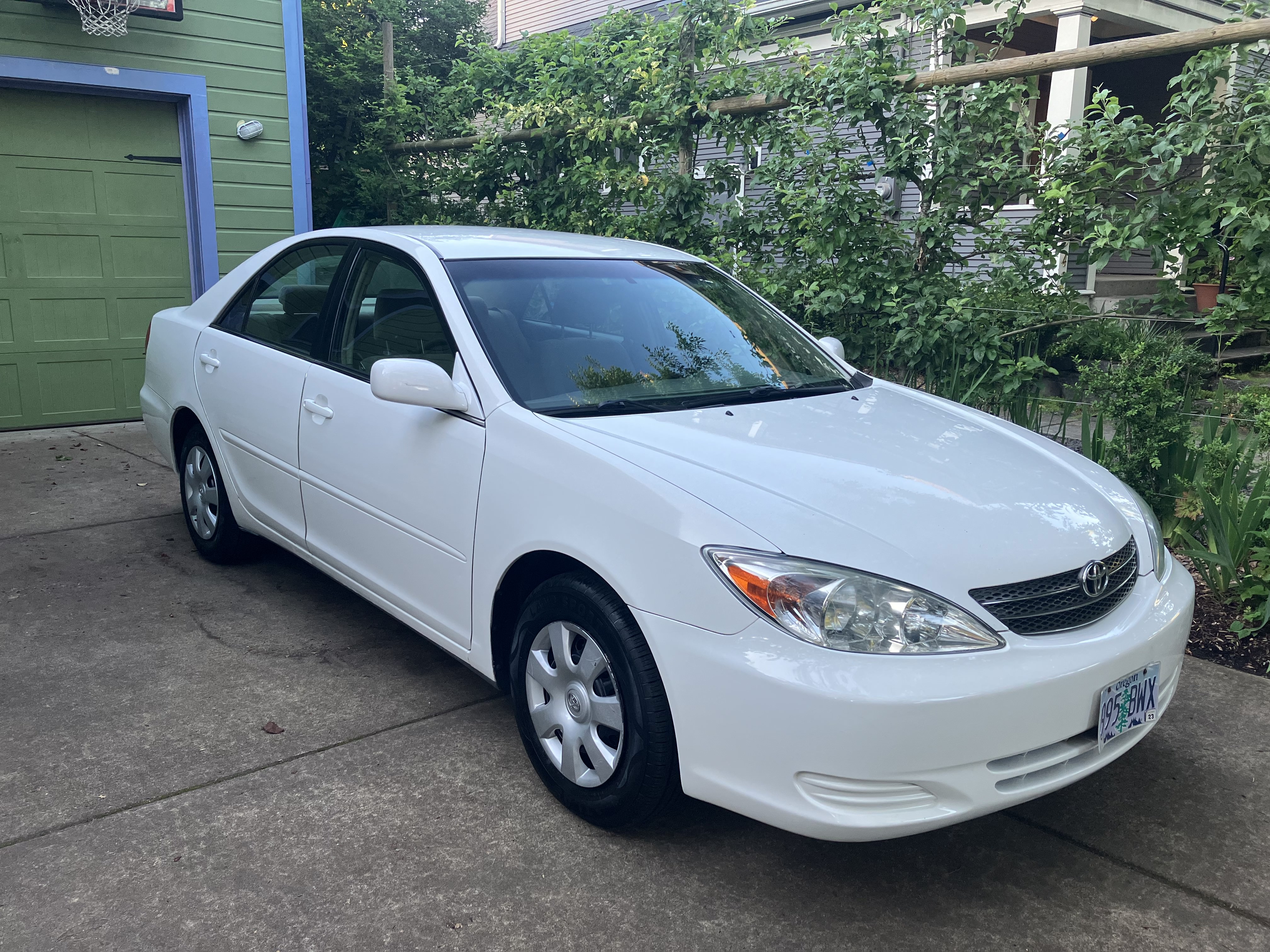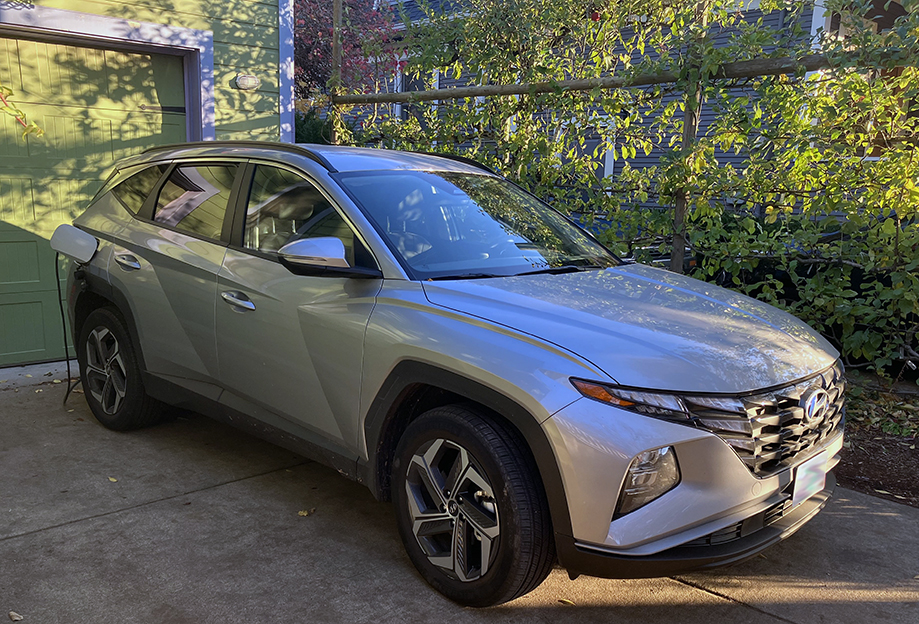 My search for a new car began in April of 2021. I was driving my 2004 Toyota Camry on the freeway, on my way to get my first COVID vaccine, when a semi-truck started pulling into my lane. I slammed on the brakes to avoid a collision; the tires locked up and started smoking as the car quickly slowed.
My search for a new car began in April of 2021. I was driving my 2004 Toyota Camry on the freeway, on my way to get my first COVID vaccine, when a semi-truck started pulling into my lane. I slammed on the brakes to avoid a collision; the tires locked up and started smoking as the car quickly slowed.
No accident occurred, but this was a near miss I hope to never repeat and the incident made me re-evaluate the safety of my car: no anti-lock brakes, no side airbags, and weak collision ratings. If the road had been wet and I was in the same car, the outcome could have been much different.
I’ve been interested in getting an electric car for years for environmental reasons, but I’d always heard a couple of things that made me question the environmental benefit:
1) a hybrid performed as well if not better than an EV in emissions due to the fact that electricity is created by burning fossil fuels, and
2) that the most environmentally friendly thing to do was to drive your existing car until the end of its useful life instead of buying something new. Besides, I don’t drive a ton so it seemed like it was hard to justify the cost of a new car since the savings of an EV are highest when you drive more.
But because I now had another motivation, safety, I decided to dig deeper into the data regarding these environmental concerns. First of all, in a handful of states, it really is true that a hybrid outperforms an EV as the cleanest car for the planet. If you live in a state that is reliant on coal for electricity like West Virginia, Kentucky, Utah, or Wyoming, the emissions from burning that coal to generate the electricity for your vehicle will still be lower than an equivalent standard gas or diesel car, but the benefits of a hybrid are even greater.
There is another set of states where electricity generation is still quite dirty, creating a break-even scenario for emissions on a hybrid vs. a plug-in hybrid or electric vehicle. North Dakota, Ohio, and Wisconsin are right on the cusp. But for the the vast majority of states in the country, especially those with significant wind or hydro generation, an electric vehicle or plug-in hybrid beat all other options from an emissions perspective, especially when you consider that most states and an increasingly greater number of electric utilities have set goals to dramatically lower their emissions over the next 10-20 years.
 So as I began my research on a new car, I was able to start with the fact that not only did I live in a state that has an abundance of hydroelectric power, but it also has a target to reduce emissions 80% by 2030 and generate 100% carbon-free electricity by 2040, making every year of EV ownership cleaner.
So as I began my research on a new car, I was able to start with the fact that not only did I live in a state that has an abundance of hydroelectric power, but it also has a target to reduce emissions 80% by 2030 and generate 100% carbon-free electricity by 2040, making every year of EV ownership cleaner.
The next challenge to deal with was the fact that a lot of people say that hanging onto your existing car beats the emissions reductions of buying a new, more efficient car. I read a great article that compares the data of the emissions embedded in manufacturing a new car vs. the ongoing emissions of your existing car. It turns out that, just like it does take energy to manufacture solar and wind, it still takes less energy than those clean energy resources will ultimately generate.
While there are factors such as how dirty the electric grid is where the battery for the electric vehicle is produced and again, how dirty the electricity is where the car is charged, buying a new EV beats keeping your conventional car running as long as possible, with the caveat that the carbon emission breakeven point comes much quicker when you live in a state that delivers clean energy.
Finally armed with the data to debunk myths around EVs, and with the motivation to buy a new car for safety reasons, I dug into different models. I wound up with a plug-in hybrid, and according to this U.S. Department of Energy calculator I should reduce my emissions by 2/3rds compared to my Camry, while also significantly leveling up the safety of my car.
At the end of the day, the data are clear that no matter where you live, a hybrid, EV, or plug-in hybrid will beat a standard car in emissions. But if you want to figure out which one is best in your state, go to the U.S. Department of Energy calculator.
Wondering how an EV or plug-in hybrid compares to an Untonne membership? Check out this article on multiplying your emissions savings.
